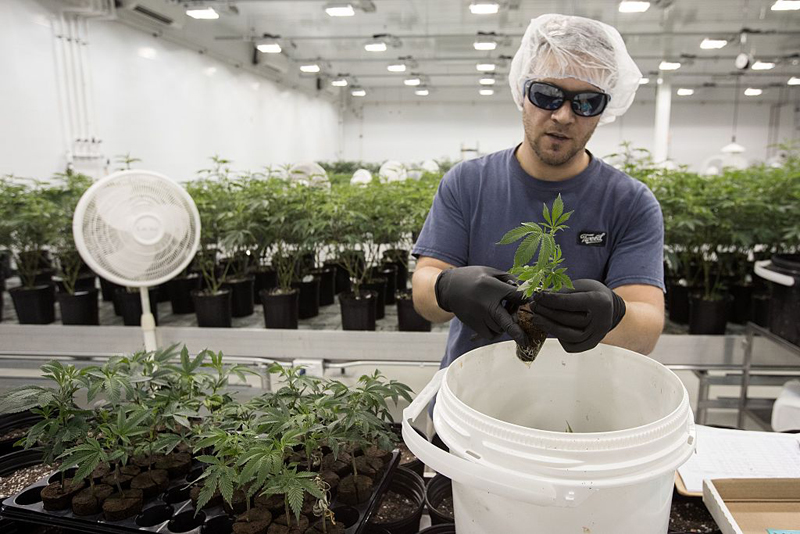If a recent poll is anything to go by, over six million Canadians who don’t smoke (or vape, or ingest) marijuana now plan to try it when it’s legal starting next July.

Any way you look at it, that’s a lot of pot. Expected national demand under recreational legalization is in the range of 650,000 kilograms a year, the Parliamentary Budget Officer pointed out in a report last fall. (The report predicted shortages.)
Will there be enough? Only if governments move beyond the existing licenced producers to small-scale grey market producers, argues Ian Dawkins of the Cannabis Commerce Association of Canada.

“Unless the federal government finds a way to give licences to the craft producers, then absolutely there will be cannabis shortages on Day 1,” he says.
“The idea that this limited number of licenced producers could increase their production by 20 or 30 times in one year, and there won’t be any difficulties, is laughable.”
The organization represents about 100 small- and medium-sized growers and dispensaries, mostly in B.C.
“Right now, the licenced producers don’t produce enough for just the medical patients. If you’re talking about just supplying medical patients to supplying the enormous recreational market, how in the heck are they even supposed to tend to one, let alone the other? They don’t have the capacity.”
Bruce Linton, CEO of Canopy Growth, a large-scale licenced producer in Smiths Falls, Ont. puts demand, at least at first, at closer to 300,000 kilograms a year, and says that existing licenced producers can expand to meet it.
His facility, which is licenced to produce 31,000 kilograms a year, could produce twice that, and he hopes to raise it to 100,000 by legalization next July, he says.
The legal recreational market will eventually cover a full range of cannabis products, including edibles and liquids for vaping, but will be more restricted at first. Meeting demand in this smaller market is “quite achievable on Day 1,” he argues.

“What I think over time will happen is that the diversity of products we’re permitted to make will increase concurrent with the rate at which the output is increasing. What we’re going to be allowed to sell is the dried cannabis products that we have, and the liquids in the format that we make.”
The existing black market will absorb some of the demand, easing pressure on legal producers, Linton argues. (There is an irony here, in that shutting down the black market is what the Liberals have said is the main goal of legalizing recreational pot.)
For his part, Dawkins points to U.S. states where existing illegal producers were brought into the legal market through licencing.
“Colorado, California, Oregon have all made extensive efforts to include the small farmers in their regulations.”
“There’s no reason to think that the small- and medium-sized farmers can’t produce enough supply to tip the scale on these monopoly systems. What that requires is for the government to create evidence-based criteria for how you evaluate the product. It’s nothing that we haven’t done with craft distilling and craft beermaking.”


Comments